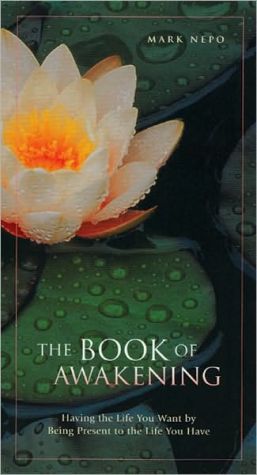God Needs No Passport: Immigrants and the Changing American Religious Landscape
A major new examination of the American immigrant experience, revealing how recent immigrants are transforming religion in America and around the globe.\ \ "People who know how to live in more than one cultural world have mastered the art of living in this global age, which is good for this country and for their homelands."—from God Needs No Passport\ \ Thousands of Hindus fill the Jacob Javits Convention Center in New York City to worship with their guru from Gujarat, India. The Boston...
Search in google:
A major new examination of the American immigrant experience, revealing how recent immigrants are transforming religion in America and around the globe."People who know how to live in more than one cultural world have mastered the art of living in this global age, which is good for this country and for their homelands."—from God Needs No PassportThousands of Hindus fill the Jacob Javits Convention Center in New York City to worship with their guru from Gujarat, India. The Boston Garden plays host to a packed house of Brazilian Protestants, with ministers beamed in via satellite. Similar scenes are played out across middle America, where millions of new immigrants from Asia, Africa, and Latin America have settled over the past decade. While many Americans expect that immigrants will trade in one membership card for another, sociologist Peggy Levitt's pathbreaking new account argues instead that many keep one foot in their countries of origin by participating in religious institutions—made possible by communications technology and the ease of international travel—that are a powerful but little-known force in today's world.Immigrants are changing the face of religious diversity in the United States, Levitt argues, helping to make American religion just as global as U.S. corporations. In a book with stunning implications for today's immigration debates—where commentators routinely refer to a "clash of civilizations"—Levitt shows that the new realities of religion and migration are subtly challenging the very definition of what it means to be an American. God Needs No Passport reveals that American values are nolonger just made in the U.S.A. but around the globe. George Westerlund - Library Journal Levitt (sociology, Wellesley Coll.; The Transnational Villagers) opens with the experiences of U.S. immigrants from a small city in interior Brazil and similar places in India, Pakistan, and Ireland, drawing from extensive surveys and interviews with 247 first-generation immigrants. Her charts and statistics give an excellent overall view of the results of her thorough on-site research; the illustrations show how immigration is affecting American values because of, e.g., migratory experiences, family ties, educational attainments, political participation, and social inclinations. Levitt describes specifically the way religion is being challenged and changed; "that it is alive and well"; and that it operates across cultures, much like today's global corporations. Finally, she suggests that robust pluralism may be an answer to the threats of future terrorism. General readers will appreciate the summary comments and charts in the appendix (though, by the same token, all the minute observations and examples may cause them to lose interest); sociologists will appreciate the specifics. Recommended for academic libraries.
Acknowledgments xiPrologue 11 Redefining the Boundaries of Belonging 92 Transnational Lives 273 Between the Nation, the World, and God 674 Values and Practices: "You Do Your Best and You Leave the Rest" 935 A New Religious Architecture 1136 Getting to the Other Side of the Rainbow with Faith as the Car 137Conclusion Tolerance in the Face of Terrorism 165Appendix Demographic Characteristics and Transnational Ties: Similarities and Differences 175Notes 201References 235Index 257
\ Library JournalLevitt (sociology, Wellesley Coll.; The Transnational Villagers) opens with the experiences of U.S. immigrants from a small city in interior Brazil and similar places in India, Pakistan, and Ireland, drawing from extensive surveys and interviews with 247 first-generation immigrants. Her charts and statistics give an excellent overall view of the results of her thorough on-site research; the illustrations show how immigration is affecting American values because of, e.g., migratory experiences, family ties, educational attainments, political participation, and social inclinations. Levitt describes specifically the way religion is being challenged and changed; "that it is alive and well"; and that it operates across cultures, much like today's global corporations. Finally, she suggests that robust pluralism may be an answer to the threats of future terrorism. General readers will appreciate the summary comments and charts in the appendix (though, by the same token, all the minute observations and examples may cause them to lose interest); sociologists will appreciate the specifics. Recommended for academic libraries.\ —George Westerlund\ \ \








